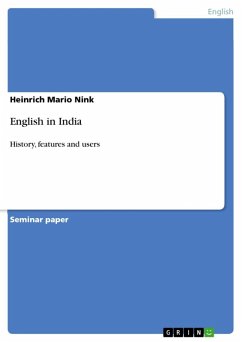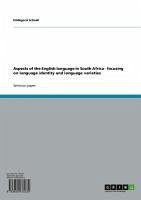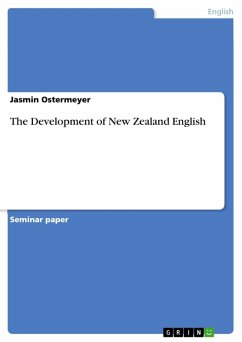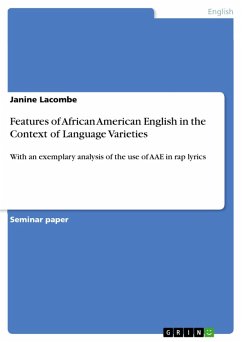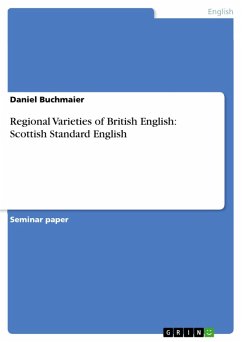Seminar paper from the year 2008 in the subject English Language and Literature Studies - Linguistics, grade: 2,0, University of Trier, course: English in South and Southeast Asia, language: English, abstract: India is the second largest country in the world, concerning the number of inhabitants. 1.2 billion people are living on an area about 10 times larger than Germany. The country has a long, sometimes violent history with many ups and downs and many different ethnic groups trying to conquer the country. Right now, it has the status of a so called take-off country and is considered to become one of the most leading nations in the world, economically as well as politically, in near future. But even though the country is on the road to a better future, there are still many problems that have to be solved. Of course there are problems like poverty, environmental issues and so on. But one problem in India is the fact that the country itself is not unified, many different ethnic groups are living there and over 500 different languages are spoken. One of the many languages spoken is English. Almost every Indian gets in contact with English at one point of his live. It is the medium of instruction in most of the schools as well in universities. And in order to get an occupation, for example in the civil service in India, one has to master English, alongside with Hindi and another regional language as well. Over the last 200 years, it has been established as a lingua franca in India, a language that unites a country where 500 different languages are spoken. But how important is English in India, and what is its history and status? Also it has to considered, whether Indian English has become an own variety of English. It is, as mentioned, being used and spoken in India for over two centuries now and certain features, in written as well as in spoken language, developed in the course of time. Some of them are obvious to the native speaker, others not. Some might even sound or look rather comical to someone not familiar with the features of this variety. But what are those features and by whom are they used? Another question that also arises is how, where and by whom English is used. Is it a language of the common people, the poor classes, or is it a language used only by a small group of people and who might those people be?
Dieser Download kann aus rechtlichen Gründen nur mit Rechnungsadresse in A, B, BG, CY, CZ, D, DK, EW, E, FIN, F, GR, HR, H, IRL, I, LT, L, LR, M, NL, PL, P, R, S, SLO, SK ausgeliefert werden.

